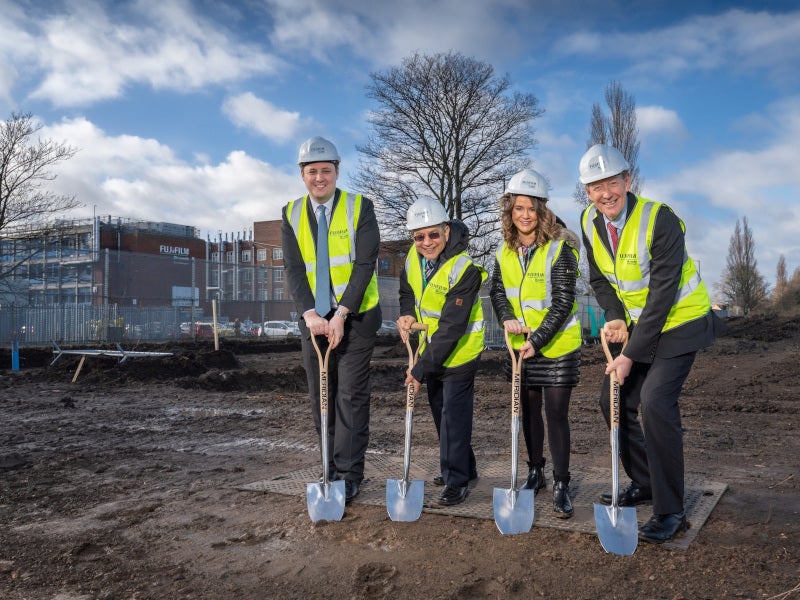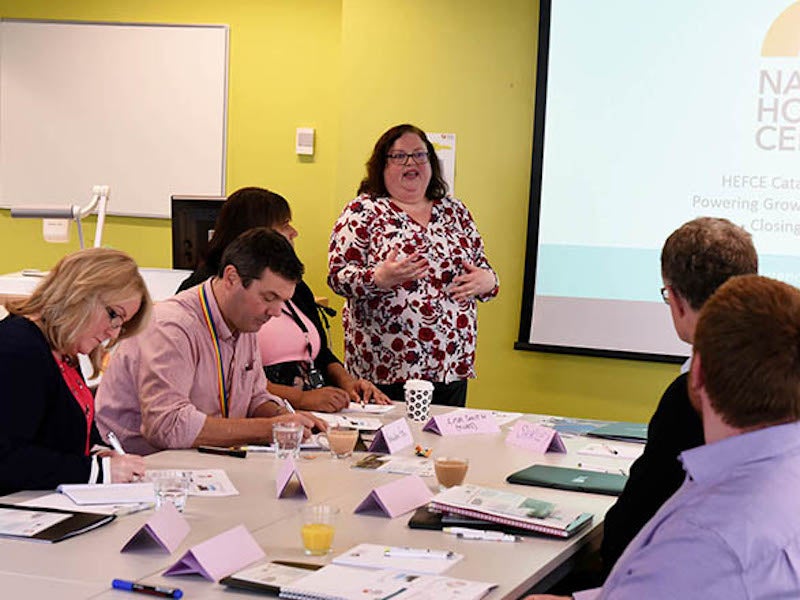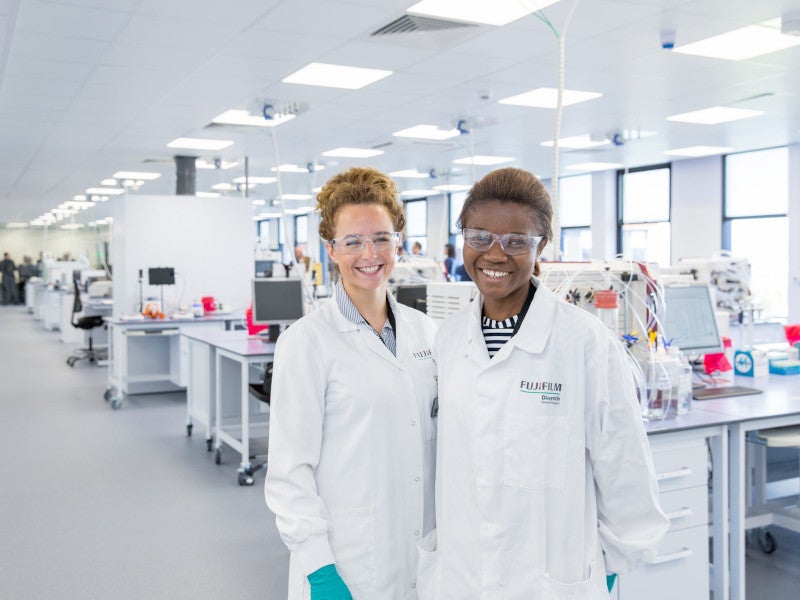Fujifilm Diosynth Biotechnologies (FDB) is building a Biocampus at its Billingham, UK site.
The Biocampus will support the company’s clients in the biopharmaceutical industry through the development and manufacturing of gene therapy, biologics and vaccine candidates.
A ground-breaking ceremony of the facility took place in March 2020. The Biocampus forms a part of the potential expansion of the Billingham location to include manufacturing spaces and laboratories dedicated to research and development (R&D).
The estimated investment for the development of the BioCampus is up to £14.5m ($18.7m), construction should be complete in March 2021.
The facility will create 50 positions to support the company’s portfolio, contributing approximately £4m ($5m) a year to the regional economy.
Fujifilm Diosynth Biotechnologies Biocampus location
Located in the centre of Tees Valley in the North East region of England, the facility will cover an area of 42,000ft² at Fujifilm’s Billingham location in the UK.
The development will continue FDB’s expansion in the region and prepare the site for the planned expansion.
FDB Biocampus details
Project phase one will involve the construction of 4,000m² office space and visitor centre.
The purpose-built facility will accommodate approximately 250 existing employees of the company. It will improve the working environment for the workers and provide enhanced visitor experience.
FDB uses scalable gene therapy processes to enable process development for advanced therapies. The development of methods for gene therapy and viral vaccine products involves the use of viruses in combination with host systems.
The selection of combinations depends on the safety, efficacy, and toxicity.
Some viral vectors used are adenovirus, poxvirus, adeno-associated virus (AAV), and lentivirus, while host cells include HK-293, Sf9 / Sf21, and EB66.
Purification strategies involve either ultracentrifugation or chromatography technique. The use of ultracentrifugation for virus purification is not considered a scalable solution in the long run, while chromatography can be considered for employment in the early stages of process development.
Expansion potential of Billingham site
Phase two will involve the construction of an innovation centre and associated infrastructure depending on customer demand.
The innovation centre will replace several existing laboratories and expand the company’s R&D capabilities. Furthermore, it will allow the company to achieve growth in current technologies and create the capacity to accommodate new technologies.
FDB is currently unable to operate all five production streams simultaneously at full capacity. Investment in the third phase should enhance the plant occupancy to run all at the same time and increase to more than seven production streams.
Phase three will also provide manufacturing capacity and infrastructure for processes related to cell and gene therapies.
Project funding
The Tees Valley Combined Authority (TVCA) is providing a grant of up to £7m ($9m) for the biotechnology facility.
Fujifilm will provide approximately £5.43m ($6.94m) in match funding. A further £1m ($1.3m) was secured under the Tees Valley Business scheme, while the remaining £1m (1.3m) will be funded from the Local Growth Fund.
Marketing commentary on Fujifilm Diosynth Biotechnologies
Fujifilm Diosynth Biotechnologies (FDB) is a current good manufacturing practice (cGMP) compliant contract development and manufacturing organisation (CDMO). The company operates sites in Billingham, UK, Hillerød, Denmark, Research Triangle Park, North Carolina and College Station, Texas, US.
The company has experience in the production and development of vaccines, monoclonal antibodies, recombinant proteins and medical countermeasures.
FDB’s cell line development services use its platforms such as Apollo™ mammalian and pAVEway™ microbial systems.
FDB is currently licensed to produce 14 approved products on a commercial scale.
The company opened an advanced cell culture process development laboratories in Wilton Centre, Teesside, UK, in 2017. It added 7,000ft² of laboratory space at Wilton laboratories to enhance its cell culture process development capacity, in January 2019.
FDB also supported the creation of the National Horizons Centre (NHC) at Teesside University’s Darlington campus to train existing and future workforce in the bioscience industry.






